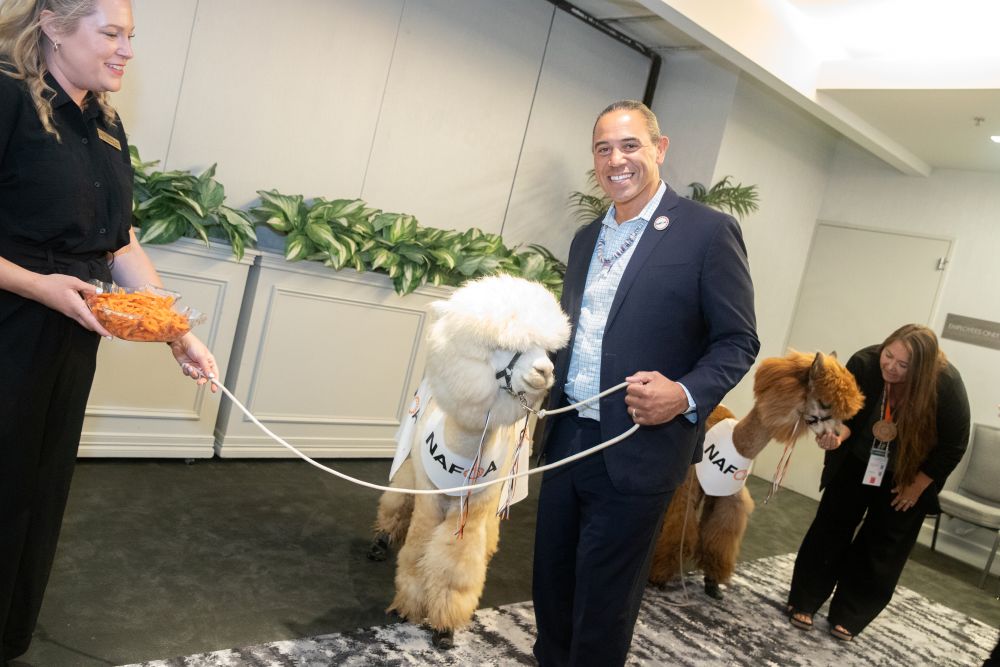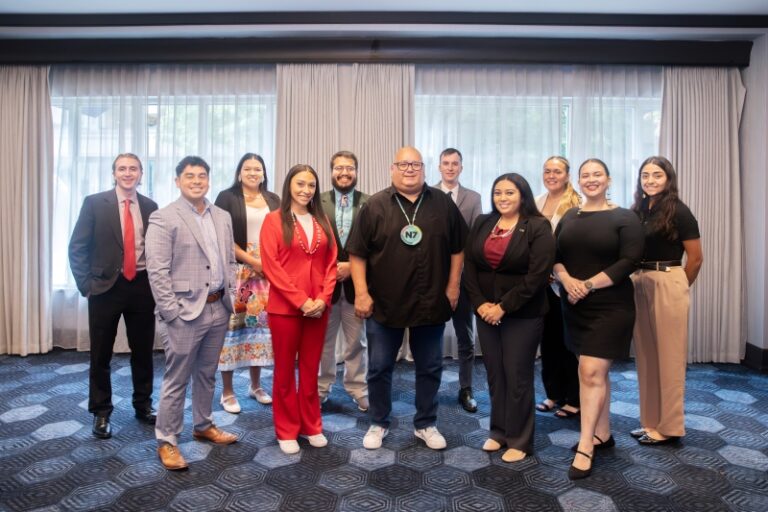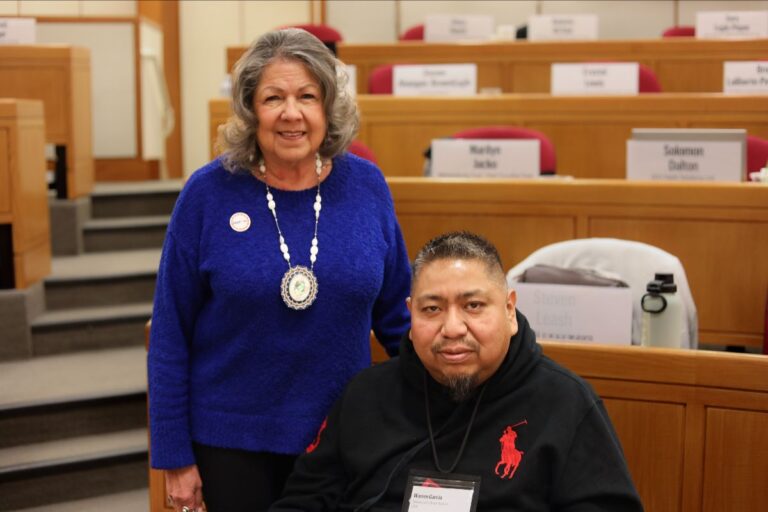1. NAFOA News: NAFOA Honors 2025 Lifetime Achievement Award Recipients at Fall Conference
The NAFOA Lifetime Achievement Awards represent the highest honor bestowed by the organization. The NAFOA Board of Directors recognizes Native American leaders who have dedicated their careers to strengthening their communities and advancing Indian Country. This year, the honorees are Bernadine Burnette, former president of the Fort McDowell Yavapai Nation, and Sam McCracken (Fort Peck Assiniboine & Sioux Tribes), founder of Nike N7.
2. Policy: Tribal Tax and Investment Reform Act, Section Summaries
Executive Summary
The Tribal Tax and Investment Reform Act represents comprehensive federal legislation designed to eliminate longstanding tax code disparities that have placed Tribal governments at a significant disadvantage compared to state and local governments. The Act addresses critical gaps across multiple areas of federal tax policy, aiming to create true parity for Tribal communities in accessing essential financing tools and benefits.
Current Disparities and Their Impact
Under existing federal tax law, Tribal governments face unique statutory restrictions that severely limit their ability to finance infrastructure and economic development projects.
These disparities manifest in stark statistics: from 1987 to 2010, only 17% of federally recognized Tribes issued tax-exempt bonds, with Tribal participation rarely exceeding one-fifth of 1% of the overall tax-exempt bond market. State and local governments averaged $597 per capita in annual tax-exempt bond issuances compared to only $127 per Tribal citizen. From 2014 to 2020, state governments issued an average of $47 billion annually in tax-exempt bonds versus just $84 million by Tribal governments.
This 559-fold gap forces rural Tribal communities to pay significantly higher capital costs for the same projects.
Individual section summaries can be found on NAFOA’s Policy page.
3. Webinar: Understanding Federal Government Shutdown Impacts on Tribal Nations
Federal government shutdowns create real uncertainty for Tribal Nations, from funding interruptions to impacts on critical services. To help Tribal leaders and communities prepare, the National Congress of American Indians (NCAI) is hosting an important webinar, “Understanding Federal Government Shutdown Impacts on Tribal Nations” this Monday, September 29 at 2:00–3:00 p.m. ET.
Join presenters Tyler Scribner, Liz Carr, and other experts as they walk through:
- What happens to Tribal funding during a shutdown
- Availability of Indian Affairs and Indian Health Service (IHS) personnel
- Impacts to essential programs and services
- Steps for contingency planning and staying informed
This is an essential opportunity to gain clarity, ask questions, and ensure your community is prepared.
Source: National Congress of American Indians (NCAI)
Register to Join Today at 2:30PM ET >>
4. Community: ONAC Credit Counseling, Homebuyer Education, and/or Money Management Coaching
The Oklahoma Native Assets Coalition, Inc. (ONAC) is providing three types of free financial coaching to American Indians and Alaska Natives and others in the United States: 1) credit builder/credit counseling sessions, 2) homebuyer education, and 3) money management coaching (i.e., help with budgeting).
Confidential sessions are offered one-on-one, by teleconference (Zoom) or phone call, with certified credit counselor, homebuyer education provider, and/or financial educators. Typically, these sessions will last for a minimum of thirty minutes and, depending upon the financial coach, are available on weekdays and Saturday mornings.
Source: Oklahoma Native Assets Coalition, Inc. (ONAC)
5. Job Opportunity: Director of Operation, Soboba Economic Development Corporation
The Director of Operations will exercise professional and technical leadership in developing, formulating, and executing Soboba Economic Development Corporation (SEDC) business plans for existing and future Tribal Enterprises. The Director of Operations will plan, organize, manage, and review the activities of the Planning and Economic Development functions of the SEDC and provide strategic leadership, direction, and resource management to these functions.
Have something to share with the NAFOA community? Share an entry in the “5 Things” Newsletter
Get NAFOA’s 5 Things You Need to Know This Week in your inbox at the start of each week: Subscribe.




